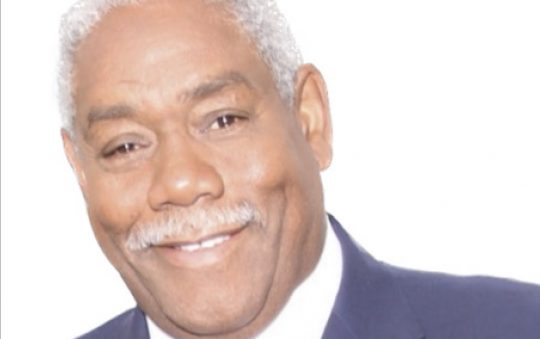
During the recent Rainbow PUSH Coalition conference in the nation’s capital, top Democratic pollster Cornell Belcher told a room full of activists, journalists and community leaders the most recent election was a game of inches.
“On the Republican side, their coalition is shrinking,” he added. “When people say they want their country, back we should understand that they are serious.”
Belcher not only served on the presidential campaign teams for Barack Obama in 2008 and 2012, he also worked with the Democratic National Committee. For some reason, Hillary Clinton’s team did not use Belcher this year in a race where the get out to vote efforts of the Black community would play a key role in a Democratic victory.
The prominent pollster is also the author of the new book, “A Black Man in the White House: Barack Obama and the Triggering of America’s Racial-Aversion Crisis.” The book explores the questions around the historic run of the first Black president of the United States, as well as the “problem of the color line” in America.
With Black and Brown political power on the rise due to shifting demographics in America, the so-called “Trump effect” isn’t going away any time soon.
On December 6, at the Rainbow PUSH conference, Belcher made a presentation on the importance of the expanding electorate, the Obama campaign and the tactical failures of the Clinton campaign. He first reminded everyone of the winning landscape Barack Obama created.
“In 2008, we expanded the electorate by 11 percent…when you’ve done that, it’s a really big deal,” said Belcher.
“Barack Obama is not President without that expanded electorate.”
Belcher continued as he backed up his arguments using PowerPoint slides.
“This was not a sea change election, we’re not doing better with White voters, including women overall,” he said. “If you had talked about this a year ago, people were saying [Hillary Clinton] doesn’t need to completely get the Obama coalition, because certainly she’s going to do better with White women, right? Well, she didn’t do better with White women.”
He noted that, in 2016, minorities made up a larger piece of the electorate, but in 2008 Barack Obama ran up the score among moderates and liberals. Part of the problem for Hillary Clinton in 2016 was that moderates and liberals were more likely to vote for a third party candidate while, in the end, Republicans stuck together and “got in line” as others were casting protest votes. The result was a surprise victory for New York real estate developer Donald Trump.
Belcher also said that “race trumps gender” in America and that it always has. For that reason, Trump did much better with White women voters than anyone had predicted. So many polls and pundits ended up being incorrect in 2016 that the pollster/pundit class has been thrown into a state of self-study over the 2016 election results. Yet, Belcher has been talking about many of these issues for years.
Barack Obama was the first person of color to hold the office of the presidency and he only won 38 percent of the White vote with the vast majority of that group breaking the other way. The bottom line: White voters, for the first time in American history, did not decide who would be President of the United States.
“When you think every vote doesn’t matter — it absolutely does. Every vote matters,” said Belcher. “Barack Obama wasn’t winning states like Ohio and North Carolina by three or four points, he was barely winning by the tiniest of margins.”







